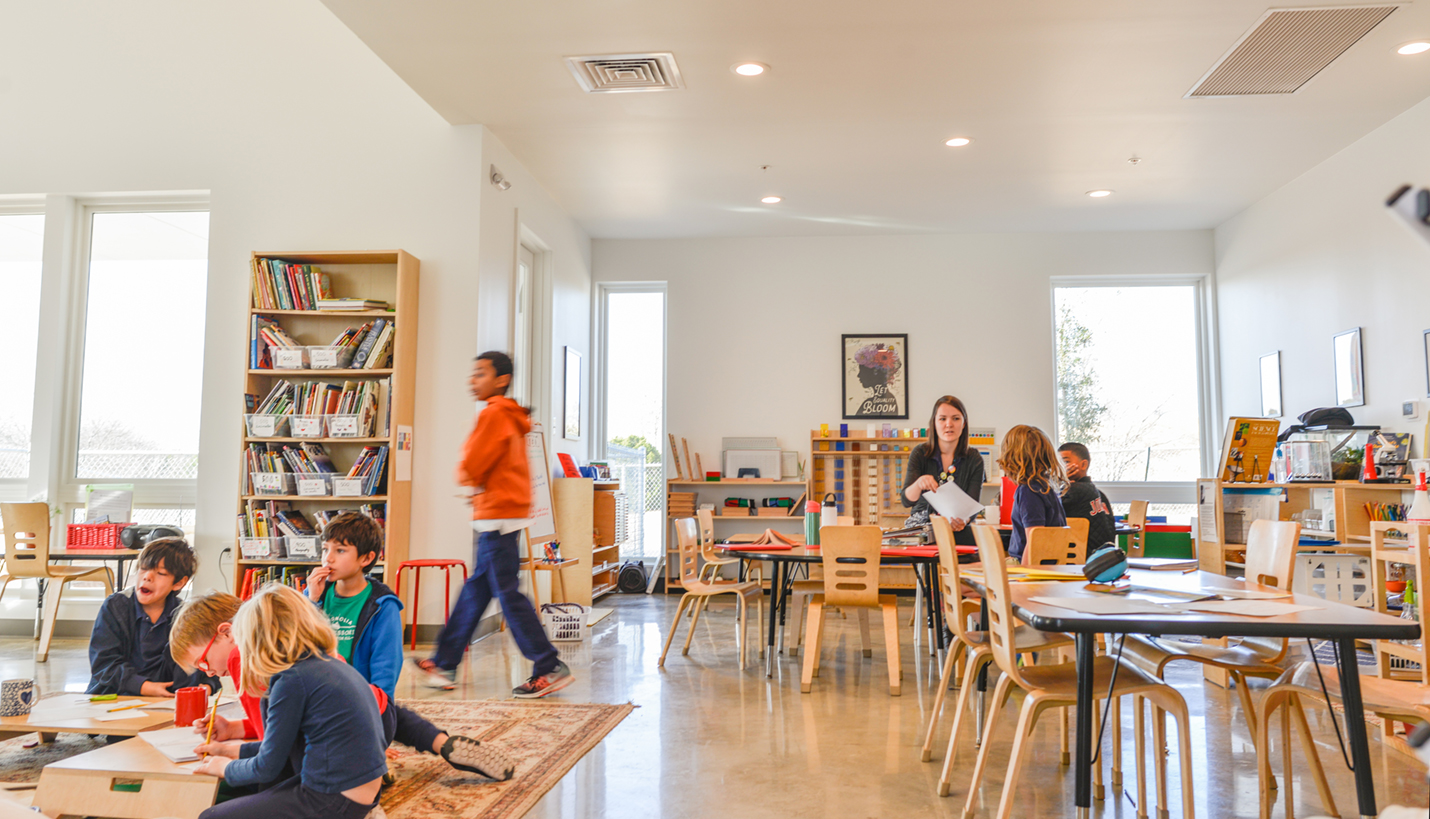

Nurturing Creative, Independent and Resilient Learners
Earlier this spring, Page hosted Metropolis Think Tank, a design-focused panel discussion moderated by Metropolis Magazine’s Director of Design Innovation, Susan S. Szenasy. Motivated by the impact of Hurricane Harvey on employees in our Houston office and the devastation wrought by natural disasters around the country in 2017, our panel, ‘Architecture, Resiliency and Community’, explored the social dimension of resilient design through the lens of several current Page projects: Block 71, the Health Learning Building at The Dell Medical School at The University of Texas at Austin and Magnolia Montessori For All.
According to the Resilient Design Institute, the social aspects of resilience can be as important as the physical responses because social relationships are protective of mental health. “Strong, culturally diverse communities in which people know, respect, and care for each other will fare better during times of stress or disturbance.” From this premise, the conversation explored the role architecture and designed spaces at different scales can play in nurturing connections between diverse communities of users.
Sam Gosling, a Professor of Psychology at the University of Texas at Austin, kicked off the conversation with a short presentation on environmental psychology, specifically how people select or adapt physical environments to regulate their emotional states.
Against this backdrop, the discussion turned to the impact of Magnolia Montessori For All’s new campus in east Austin on its population of 400 students, who range in age from infants to 6th grade. Instead of an imposing civic building, Austin’s first public Montessori school is a village of crisp cottage-like buildings that dot a gently sloping site. Sarah Cotner, Founder and CEO of Magnolia Montessori For All, described the drivers and benefits of this arrangement.
“Montessori educates the ‘whole child’ and cultivates creativity, innovation and leadership skills. Children need these qualities to be successful in the future. Helping them develop self-direction, independence, collaboration, critical thinking means changing what they are doing at school, day-in and day-out. If you want to change what the children are doing, you have to change what the space looks like.
“Instead of looking like an institution, our school looks like a village. Each classroom looks like a house, and no two are alike. At any given time, there are children working outside in the garden; children peeling and serving carrots to their peers; children working on math or reading lessons; children playing musical instruments or taking care of the class pet. All of this activity happens at the same time, and the classrooms facilitate this. The ability to choose what to do and when fosters students’ independence, self-reliance, creativity and a sense of community.”
“When we opened Montessori For All in 2014, there were more than 20 Montessori schools in Austin, but they were all private. We are a public school, so we accept all children. We intentionally created a racially, culturally and socioeconomically diverse community. We have observed that when you change the programming and the architecture, you change people. We participated in a national study that measures different outcomes, and our school is at the top of the cohort related to persistence, sense of belonging, cultural competence and resiliency—all of which are important for creating leaders of the future.”
Prominent entrepreneurs including Sergey Brin and Larry Page of Google, Jeff Bezos of Amazon and Jimmy Wales of Wikipedia have credited their early Montessori education with inspiring their curiosity, determination and passion for learning. With their new campus, Magnolia Montessori For All provides students of all backgrounds with a supportive learning community committed to helping each child achieve his or her potential.
05/23/2018
People
Related Posts
- Elevating Education Through Design
- Impacting Our Local Communities
- Making Montessori Education More Accessible For All
- Unique Montessori Campus Recognized with National Design Award
- Architect Magazine: Making Montessori Education More Accessible For All
- Disasters—and Bad Architecture—Can Affect Human Happiness and Productivity
- Converting Lessons Into Awards








